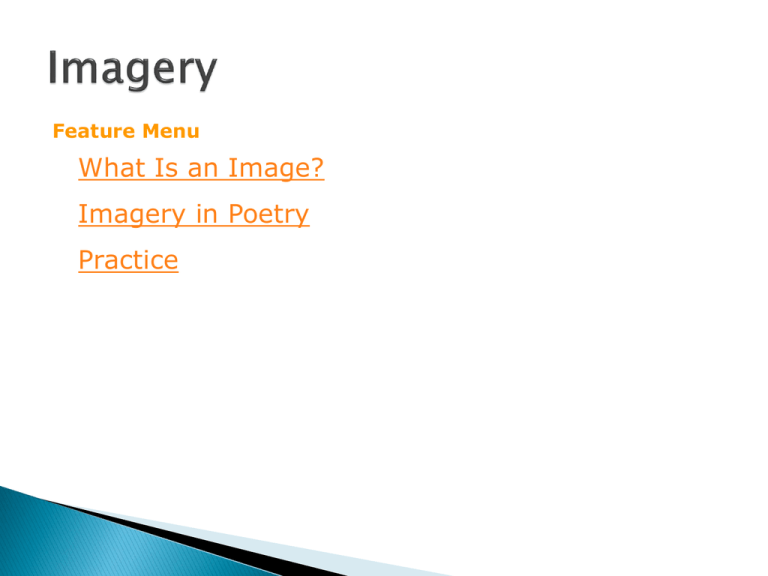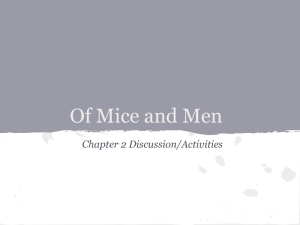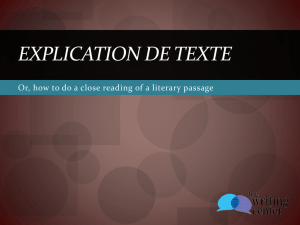Elements of Literature: Imagery
advertisement

Feature Menu What Is an Image? Imagery in Poetry Practice An image is a word or phrase that appeals to one of our senses. Images can help us • create a mental picture • hear a sound • feel texture or temperature • taste a sweet, sour, or salty flavor Listen to this excerpt of “The Shell” by James Stephens and imagine the scene he describes. And straightway like a bell Came low and clear The slow, sad murmur of the distant seas, .............................. And in the hush of waters was the sound Of pebbles rolling round, For ever rolling with a hollow sound. And bubbling sea-weeds as the waters go Swish to and fro Their long, cold tentacles of slimy grey. —from “The Shell” by James Stephens Quick Check And straightway like a bell Came low and clear The slow, sad murmur of the distant seas, .............................. And in the hush of waters was the sound Of pebbles rolling round, For ever rolling with a hollow sound. And bubbling sea-weeds as the waters go Swish to and fro Their long, cold tentacles of slimy grey. —from “The Shell” by James Stephens Which words appeal to the sense of hearing? sight? touch? [End of Section] Imagery Descriptive words or phrases that appeal to the 5 senses: sight, sound, touch, taste, and smell- creating a picture in the reader’s mind. What is the mental picture or image you are left with after reading the passage from “The Most Dangerous Game” Write down words or phrases that appeal to your senses. 1. 2. 3. 4. Select a passage from “The Most Dangerous Game” that appeals to at least 3 of the reader’s five senses. Write the passage on the white paper provided. Create a color code system to show which words appeal to which senses (example: all words in the passage that appeal to touch may be underlined red). Based upon the passage create an illustration, collage, or various symbols that represent the most important images in the passage. 1. 2. 3. Select a paragraph from “The Most Dangerous Game” that you think is the best example of imagery. Use pages 218219,220,221, 231,232 only. Write the passage on the white paper provided. 4.Create a color code system to show which words appeal to which senses (example: all words in the passage that appeal to touch may be underlined red). 5. Based upon the passage create an illustration, collage, or various symbols that represent the most important images in the passage.








